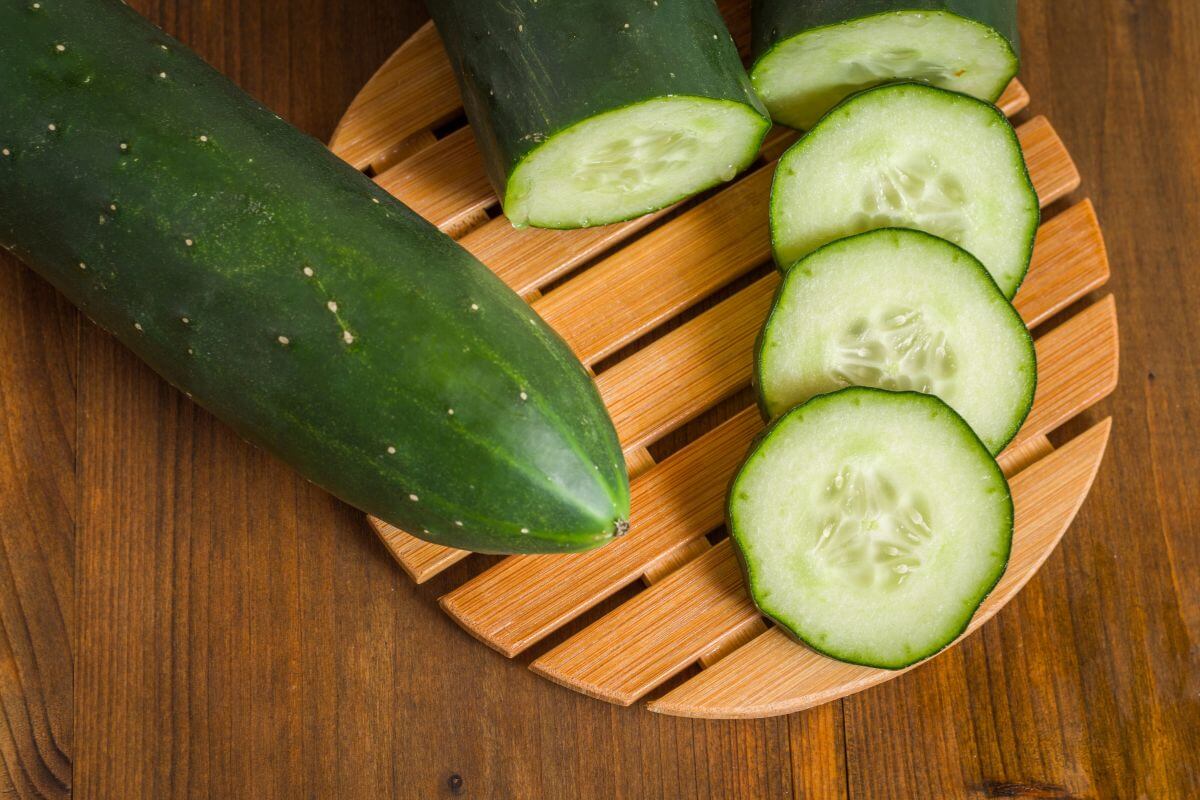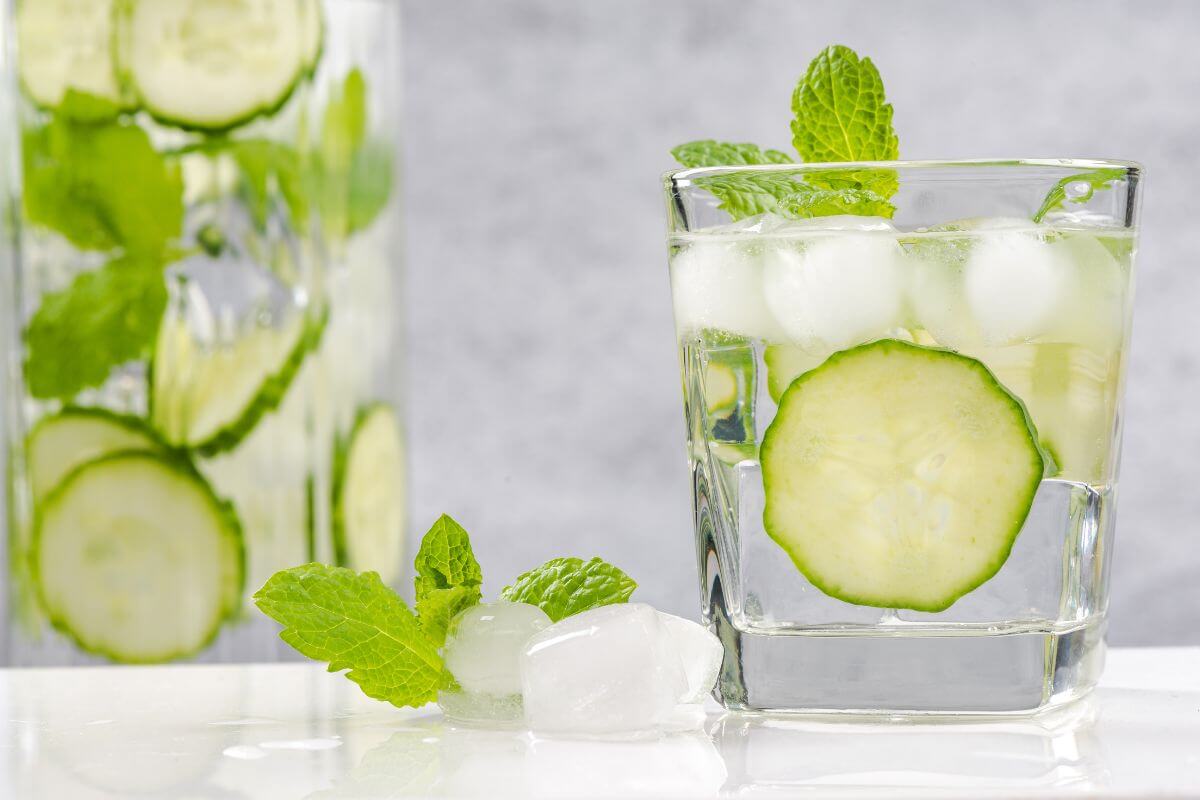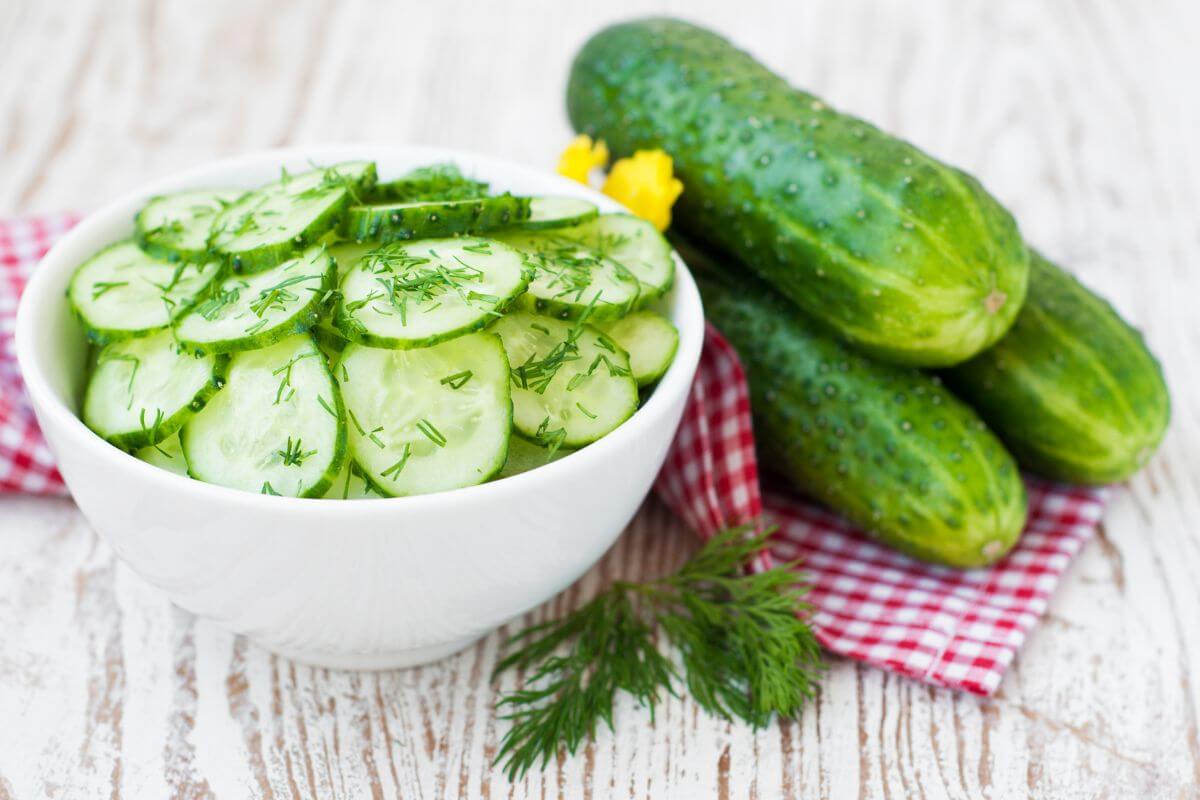There has been talk about whether the cucumber is a fruit or a vegetable. You might be curious to know too since it’s probably a staple in your kitchens and gardens.
Let’s cut to the chase. Many might consider cucumbers as vegetables because of how they’re used in the kitchen, but they are classified as fruits botanically.
I’ll tackle both the botanical and culinary definitions of this fruit in this guide. I’ll also teach you how cucumbers can benefit your health and how to add them to your meals.
There’s a lot to learn about cucumbers and the argument on their true classification is just the beginning. Keep reading to discover the fascinating world of cucumbers and how they can improve your diet.
- Related article: Vegetable vs Fruit Comparison
4 Key Takeaways on Is the Cucumber a Fruit or Vegetable
- Cucumbers are fruits because they are the seed-bearing part of a flowering plant. Specifically, they are berries because they grow from one ovary.
- Cucumbers are also vegetables based on their role in cooking. They’re often used in savory dishes like pickles and salads. They can also be used in sandwiches, smoothies, and other snacks.
- Cucumbers are packed with vitamins and minerals, including vitamin C, vitamin K, magnesium, potassium, and manganese.
- Cucumbers are about 96% water, which makes them great for hydration and fluid balance.
Is the Cucumber a Fruit or Vegetable?

Cucumbers, named Cucumis sativus, are part of the Cucurbitaceae family. They come from Southeast Asia and are popular in summer dishes.
You might not see cucumbers as fruit, but they are botanically fruits because of their composition and biology. They grow from a flower and help the plant reproduce. This is the same way you might think eggplants, tomatoes, and bell peppers are vegetables, but they’re technically fruit because they have seeds.
Interestingly, cucumbers are also classified as berries because they grow from a single bloom that has only one ovary.
In culinary terms, cucumbers are vegetables. They have a crunchy texture and are often used in savory dishes like salads and pickles. Cucumbers can be found in the vegetable section of grocery stores, alongside other greens.
What Are the Health Benefits of Cucumbers?
Cucumbers contain numerous vitamins and minerals necessary for general health and boosting the immune system. A single cucumber weighing approximately 11 ounces contains:
| Nutrient | Amount in a Single Cucumber (11 ounces) | Percentage of Required Daily Intake (RDI) |
|---|---|---|
| Protein | 2 grams | – |
| Fiber | 2 grams | – |
| Carbohydrates | 11 grams | – |
| Vitamin C | – | 14% |
| Vitamin K | – | 62% |
| Magnesium | – | 10% |
| Potassium | – | 13% |
| Manganese | – | 12% |
When it comes to our diet, cucumbers provide lots of vitamins and minerals, although they are primarily comprised of water. Here are some important health benefits to enjoy when including cucumbers in your diet.
1. Cucumbers Are Great for Hydration

Cucumbers are about 96% water. This makes them one of the most hydrating foods. Eating them helps replenish your body’s fluids.
They also contain important electrolytes like potassium. These help regulate fluid balance and prevent dehydration. The water and electrolytes in cucumbers work together to keep you hydrated.
If you don’t like plain water, add cucumber slices. This can make water more appealing and encourage you to drink more throughout the day.
After exercise, cucumbers are a great choice. They help rehydrate your body by replacing lost fluids and electrolytes from sweating.
Cucumbers also have mild diuretic properties. They help flush out excess water and reduce bloating, which improves overall hydration.
2. Cucumbers May Help With Weight Loss
You might not know this, but cucumbers can help you lose weight in several ways.
Eating cucumbers can help you feel full because they have a lot of fiber and water. This can stop you from overeating.
You can also use cucumbers in place of high-calorie foods. Add them to sandwiches, salads, or dips to cut down on calories.
Cucumbers are very low in calories. One cup has only 16 calories. This means you can eat a lot of them without gaining weight.
The small amount of fiber in cucumbers also helps you feel full. This can reduce how much you eat later.
3. Cucumbers May Help Lower Blood Sugar
Eating cucumbers may help lower blood sugar and prevent diabetes problems (source).
Cucumbers have a low glycemic index. This means they won’t spike your blood sugar much after eating. The glycemic index shows how fast food raises blood sugar.
Cucumbers are also high in fiber, especially in the skin. Fiber slows the absorption of sugar and carbs. This helps prevent blood sugar spikes.
Cucumbers contain antioxidants like cucurbitacins. These may help regulate blood sugar and prevent diabetes issues. While animal and test-tube studies show promise, more research is needed on humans.
4. Cucumbers Can Help Improve Gut Health

Eating cucumbers can help you stay regular. Constipation often happens because of dehydration. Cucumbers have a lot of water to keep stools soft and easy to pass. This helps prevent constipation and straining.
Cucumbers also have soluble fiber. This fiber is good for your digestive health and keeps you regular.
There’s a special fiber in cucumbers called pectin. Pectin acts as a prebiotic. Prebiotics feed the good bacteria in your gut. This helps keep your gut microbiome balanced.
Cucumbers have antioxidants and compounds like cucurbitacins. These have anti-inflammatory effects on your digestive tract. Reducing inflammation can help prevent conditions like inflammatory bowel disease.
5. Cucumbers Provide Antioxidant Protection
Cucumbers have antioxidants that stop oxidation and free radicals. Free radicals can cause serious diseases.
These diseases include heart disease, cancer, lung disease, and autoimmune illnesses. Cucumbers have flavonoids and tannins that block free radicals.
They also contain vitamins like vitamin C and beta-carotene. These vitamins neutralize free radicals and oxidative stress.
Cucumbers have flavonoids like quercetin and apigenin. These flavonoids are antioxidants and reduce inflammation.
6. Cucumbers Help Improve Bone Health
Cucumbers are packed with vitamin K, which is important for your bones and blood clotting.
Just one medium cucumber gives you over 50% of your daily vitamin K needs. This vitamin is vital because it helps your body absorb and use calcium, which is key for bone health.
Research shows that getting enough vitamin K can increase bone density and lower the risk of osteoporosis and fractures. So, eating cucumbers can help keep your bones strong and prevent bone loss as you age.
Cucumbers also have silica, a mineral that helps produce collagen. Collagen is a major protein in bones, cartilage, and connective tissues. Getting enough silica from cucumbers can support healthy collagen formation.
7. Cucumbers Improve Skin and Eye Health

You can use cucumber slices on your eyes or skin to soothe and reduce puffiness and wrinkles.
Cucumbers aren’t just for salads. Many health and beauty products use cucumber juice or essence.
Cucumber for Skin Health:
- Cucumbers can lighten the skin under your eyes. This helps with dark circles and discoloration.
- The antioxidants in cucumbers can soothe irritated or inflamed skin around your eyes.
- Cucumbers are full of water which makes them a great natural moisturizer.
- Vitamins C and K in cucumbers help produce collagen and reduce puffiness.
- Using cucumber extracts can tighten pores and improve your skin’s complexion.
Cucumber for Eye Health:
- Cucumber slices cool your eyes and reduce swelling and puffiness.
- Antioxidants in cucumbers protect the sensitive skin around your eyes from damage.
- Vitamin K and caffeic acid in cucumbers improve circulation and reduce dark circles.
- Applying cucumber slices feels refreshing and helps relax your eyes.
How to Add Cucumbers to Your Diet

Cucumbers are a staple in kitchens worldwide. They are easy to add to your diet and you usually eat them raw with little prep. Their crisp texture and mild taste fit into many recipes. The skin has a slightly bitter flavor that adds depth to dishes.
You can use cucumbers in salads (except fruit salads), sandwiches, and snacks. They also make great pickles. Here are some simple ways to enjoy more cucumbers:
- Salads – Slice or chop cucumbers to add crunch to green salads, pasta salads, or grain-based salads.
- Sandwiches and Wraps – Add cucumber slices to sandwiches, burgers, or wraps for a cool contrast.
- Snacks – Eat cucumber slices or sticks as a hydrating snack. Pair them with dips like hummus or tzatziki.
- Infused Water – Add cucumber slices to the water for a refreshing flavor.
- Smoothies – Blend cucumbers into fruit or vegetable smoothies for extra hydration.
- Pickles – Make quick pickles with vinegar, herbs, and spices.
- Gazpacho – Add cucumbers to cold soups like gazpacho.
- Sushi – Use cucumbers as a crunchy filling or topping for sushi rolls.
- Veggie Trays – Serve cucumber sticks or coins with dips on a veggie tray.
- Salad dressings – Blend cucumbers into creamy dressings for added flavor.
Try these tips to make cucumbers a regular part of your meals. They are versatile and add a fresh taste to a wide variety of savory dishes.
Is Cucumber a Fruit or Vegetable? Final Thoughts
Cucumbers are incredibly versatile. You can add them to almost any dish to improve its flavor.
They are packed with nutrients. These nutrients can improve gut health, boost vision, and clear your skin. They also help keep your bones strong and protect your cells from damage.
Don’t worry too much about whether it’s a fruit or a vegetable. Just focus on adding cucumbers to your diet. They will be a delicious and refreshing addition to your meals.
Learn more about other vegetables and fruits with these articles:
- Is Corn Considered a Fruit or a Vegetable
- Is Egg a Vegetable or Fruit
- Is an Eggplant a Fruit or Is It a Vegetable
- Is Green Bean a Fruit or a Vegetable

